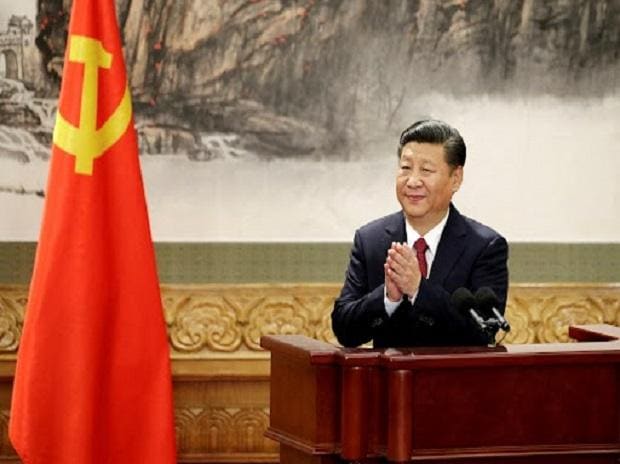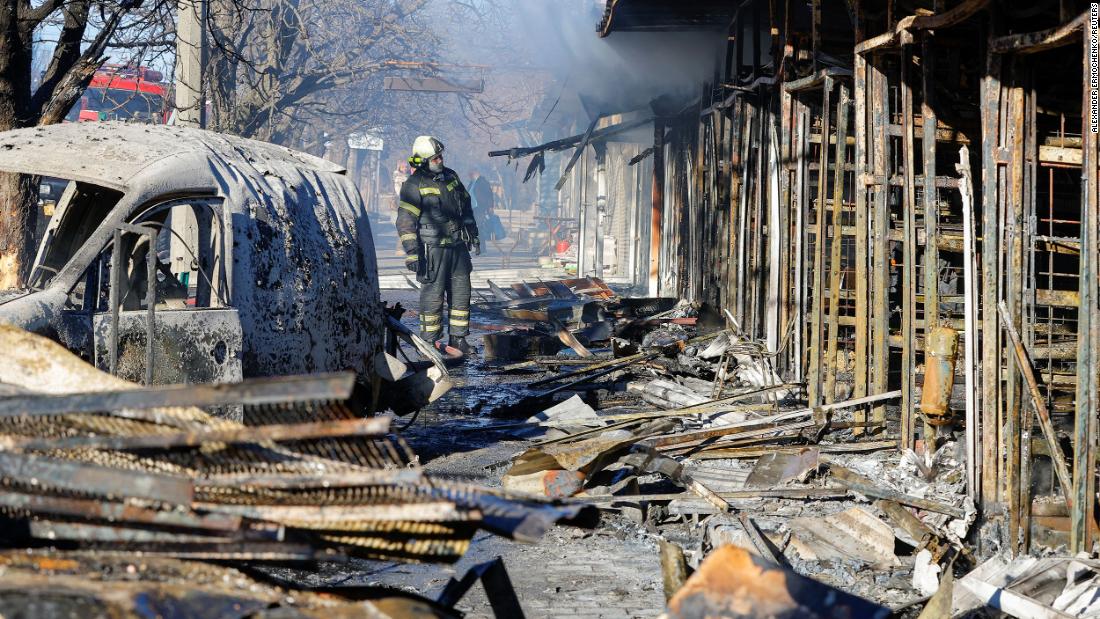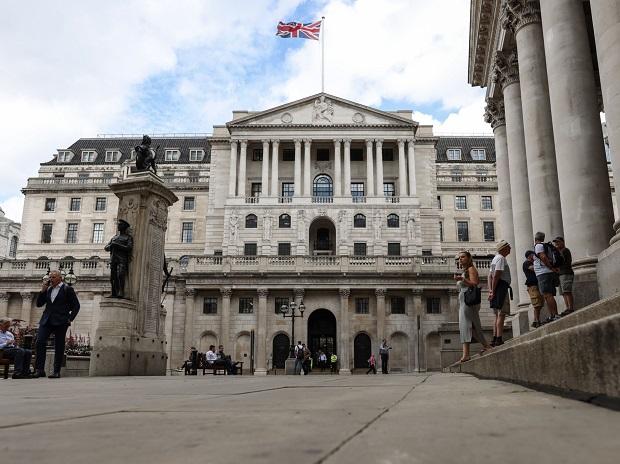Chinese President Xi Jinping on Sunday created history, becoming the first leader of the ruling Communist Party after party founder Mao Zedong to get re-elected for an unprecedented third term in power with the prospect of ruling China for life.
Xi, 69, was elected Sunday morning as General Secretary of the Communist Party for 3rd five-year tenure by the Central Committee, which was constituted a day earlier by the once-in-a-five-year Congress.
The Central Committee session, presided over by Xi, was attended by 203 members of the 20th CPC Central Committee and 168 alternate members, an official communique here said.
The Central Committee also approved a 24-member Political Bureau which in turn elected a seven-member Standing Committee, which is packed with Xi’s supporters.
In a familiar pattern, all seven members of the Standing Committee, the most powerful body that governs the country, walked in a file with Xi leading the group at the ornate Great Hall before the media. Their appearance was telecast live on the national media.
I was re-elected as the General Secretary of the CPC Central Committee, Xi said and introduced the other six, two of them were from the previous committee.
The other six are Li Qiang, Zhao Leji, Wang Huning, Cai Qi, Ding Xuexiang and Li Xi.
Both Zhao and Wang, who is the ideologue of Xi, are the members of the previous committee.
Li Qiang, head of the Shanghai CPC, is regarded as a close associate of Xi and widely expected to be promoted as Premier in March to replace the incumbent Li Keqiang who retired.
Li Qiang’s selection has raised eyebrows as Shanghai performed gravely during the recent COVID-19 spike leading to the closure of over 25 million strong city for weeks. The prolonged lockdown during which people suffered for basic necessities invoked strong criticism from the public.
A notable official who was elevated to the Political Bureau is the Foreign Minister and State Councillor Wang Yi, 69, who was previously a Central Committee member.
Wang, who is selected in spite of been crossed the retirement age of 68 for top officials, is expected to play a significant role in shaping Xi’s foreign policy.
Also, the Political Bureau has reappointed Xi as the Chairman of the all-powerful Central Military Commission (CMC), the overall high Command of the Chinese military.
With this, Xi will continue to hold all top power centres, the Presidency, the head of the Communist Party and the CMC.
The People’s Liberation Army (PLA) Generals Zhang Youxia and He Weidong were appointed as the Vice Chairmen of the CMC.
The other CMC members included top military officials Li Shangfu, Liu Zhenli, Miao Hua and Zhang Shengmin. They will head different branches of the military, including the Navy and the Rocket Force.
Like his previous two tenures, Xi is the only civilian in the CMC.
Addressing the media, Xi said China and the world need each other and projected a positive picture of the Chinese economy, which is in a slowdown mode especially due to his resolve to implement the zero-COVID policy resulting in lockdowns of several top cities leading to supply chain disruptions.
Just as China cannot develop in isolation from the world, the world needs China for its development. The Chinese economy has a great reliance potential and latitude. Its strong fundamentals will not change and it will remain on a positive trajectory over the long run. China will open its doors wide, he said.
We will be steadfast in deepening reform and opening-up across the board in pursuing high-quality development. A prosperous China will create many more opportunities for the world, Xi said, playing down concerns at home and abroad over his emphasis on Marxism and his new goal to turn China into a modern socialist country.
To the cadre of the CPC, Xi said, We must show greater historic initiative in adopting Marxism to the Chinese context and the needs of the times write new chapters in developing socialism with Chinese characteristics in the new era.
We must make sure that our century-old Party, the biggest in the world, will become ever more vigorous through self-reform and continue to be the strong backbone that the Chinese people can lean on at all times.
China is embarking on a long journey one filled with glories and dreams. The road map has been drawn and the bugle has been sounded. We must forge ahead with enterprise and fortitude and endeavour to create an even better future for our country, he said.
He thanked the media for the coverage and urged them to provide unbiased and truthful coverage of the CPC and the new era we live in.
Xi’s election for the third term in power formally ends the over three decades rule followed by his predecessors, barring Mao, of retiring after a 10-year tenure. Xi was first elected in 2012 and will be completing his 10-year tenure this year.
Moderates like Premier Li Keqiang, who was ranked number two, was eased out in the election to over 300-member Central Committee on Saturday by the CPC Congress.
Xi was elected to the Central Committee on Saturday, to the Political Bureau and the Standing Committee and then as General Secretary on Sunday with relative ease as the Congress passed the key amendment to the Party’s constitution reinforcing his core status with the directive that all party members have the obligation to follow his directives and doctrines.
Observers say Xi’s emergence as the most powerful leader as President, party leader and head of the military with the prospect of being leader for life in the footsteps of Mao, whose extremist ideological campaigns like the Cultural Revolution resulting the extermination of millions, is widely expected to be viewed with a sense of unease and concern as the one-party state has now become a one-leader state.
The well-choreographed week-long 20th Congress ended on a sordid note on Saturday with former President Hu Jintao being physically escorted out under the glare of the media at the ornate Great Hall of people.
The incident is seen as an irony as 79-year-old Hu had peacefully handed over power to Xi ten years ago in 2012. However, official media reports said he was unwell and hence, was escorted out.
Meanwhile, a different central administration headed by the new premier will formally take place in March.
The party Congress also approved an amendment of the party Constitution on Saturday that could further enhance Xi’s stature as China’s leader.
Resolutions passed at the Congress eulogised Xi and his ideas, merging Marxism with Socialism with Chinese characteristics.
A resolution on an amendment to the Constitution of the CPC adopted at the Congress said all party members should follow Xi’s leadership.
The Congress calls on party organisations at all levels and all members of the party to follow the firm leadership of the Party Central Committee with Comrade Xi at the core, holding high the great banner of socialism with Chinese characteristics, it said.
“Xi Jinping Thought on Socialism with Chinese Characteristics for a New Era is the Marxism of contemporary China and of the 21st Century and embodies the best Chinese culture and ethos of this era,” the resolution said.
Note:- (Not all news on the site expresses the point of view of the site, but we transmit this news automatically and translate it through programmatic technology on the site and not from a human editor. The content is auto-generated from a syndicated feed.))




I am regular reader, how are you everybody? This post posted at this site is
really good.
https://w4.nagasaon6d.top/
Hello There. I found your blog using msn. This is a very well written article.
I will be sure to bookmark it and return to read more of your useful info.
Thanks for the post. I’ll definitely return.